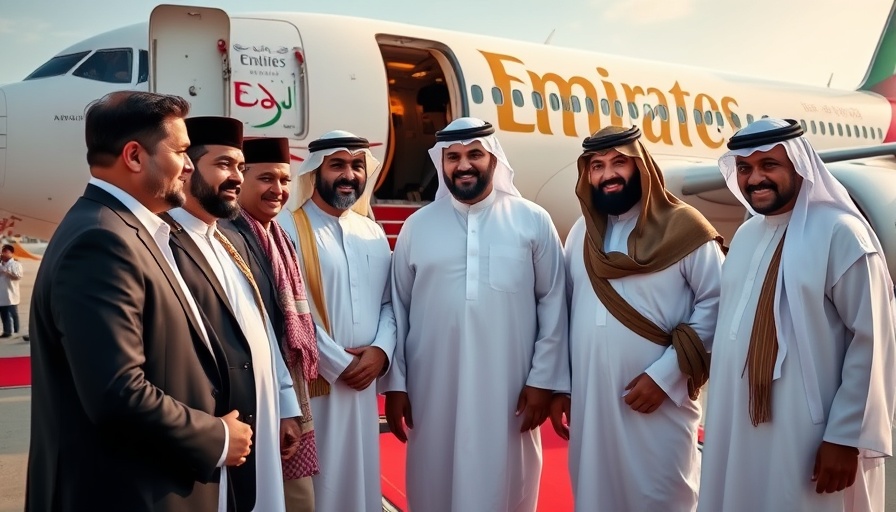
The Shift from Soccer Stardom to Shadowy Politics
In the world of high-stakes soccer, Sheikh Mansour bin Zayed al-Nahyan stands out not just for his ownership of Manchester City but also for his intertwining roles in politics and business. As the vice president of the United Arab Emirates, his involvement stretches far beyond the football pitch into the shadows of international relations and conflicts. This duality raises questions about the ethics of wielding such influence and power, especially as conflict spreads in places like Sudan.
The Man Behind the Curtain: Sheikh Mansour’s Influence
Sheikh Mansour is more than just a wealthy businessman; he has been described as a "handler" in the UAE’s covert operations across the Middle East and beyond. His recent meeting with Lt. Gen. Mohamed Hamdan, a controversial Sudanese commander associated with civil unrest, is a stark reminder of how sports, wealth, and war can converge. As soccer fans revel in the victories of Mansour’s team, few realize the shadowy dealings lurking beneath the surface.
The Golden Crescent: Sudan’s Turmoil and Its Ties to Wealth
Months before the civil war erupted in Sudan, Sheikh Mansour extended an extravagant welcome to Hamdan in his opulent palace. This meeting raises significant ethical concerns regarding foreign influence in conflict zones. Mansour’s investments in sports and development projects may be a cover for deeper strategic aims, such as securing access to Sudan’s natural resources, particularly gold, which Hamdan has exploited.
The Broader Landscape: How Sports Influence Politics
Across the globe, we observe the phenomenon where wealthy sports teams or franchises serve as fronts for political machinations. The case of Sheikh Mansour exemplifies this trend—his engagement in soccer serves to bolster the UAE's soft power while simultaneously entrenching its interests in foreign conflicts. This creates a complex interplay between entertainment and geopolitics, where the joyful cheers of soccer fans potentially mask darker undertones of war and exploitation.
Future Implications: What Lies Ahead?
As the situation in Sudan continues to unfold, the implications of Mansour's actions are profound. Analysts suggest that the continued engagements between wealthy elites and warlords could perpetuate cycles of violence and instability. As soccer becomes increasingly commercialized and intertwined with international politics, fans may need to reconsider their relationship with the sport and the figures who wield power behind the scenes.
Considerations for Global Citizens: Engaging Ethically with Sports
For fans and stakeholders in sports, understanding the broader implications of ownership and influence in the global arena is crucial. Many supporters may find their loyalties tested when they confront the ethical dilemmas posed by their teams' affiliations. Engaging critically with these issues can prompt a more informed fan base, encouraging greater accountability from teams and their owners.
While Sheikh Mansour's narrative illustrates the intersections of power and wealth, it serves as a microcosm of a broader issue in society: the complex relationships between sports, commerce, and politics. Fans must remain active participants, aware of the multifaceted implications of their passions.
Conclusion: The Call for Transparency and Accountability
The story of Sheikh Mansour is a cautionary tale about the need for transparency in sports and the ethical responsibility that comes with wealth and influence. As we enjoy the thrill of the game, let us strive for a deeper understanding of its implications, advocating for fair play, not only on the field but in the global arena.
 Add Row
Add Row  Add
Add 




 Add Row
Add Row  Add
Add 

Write A Comment